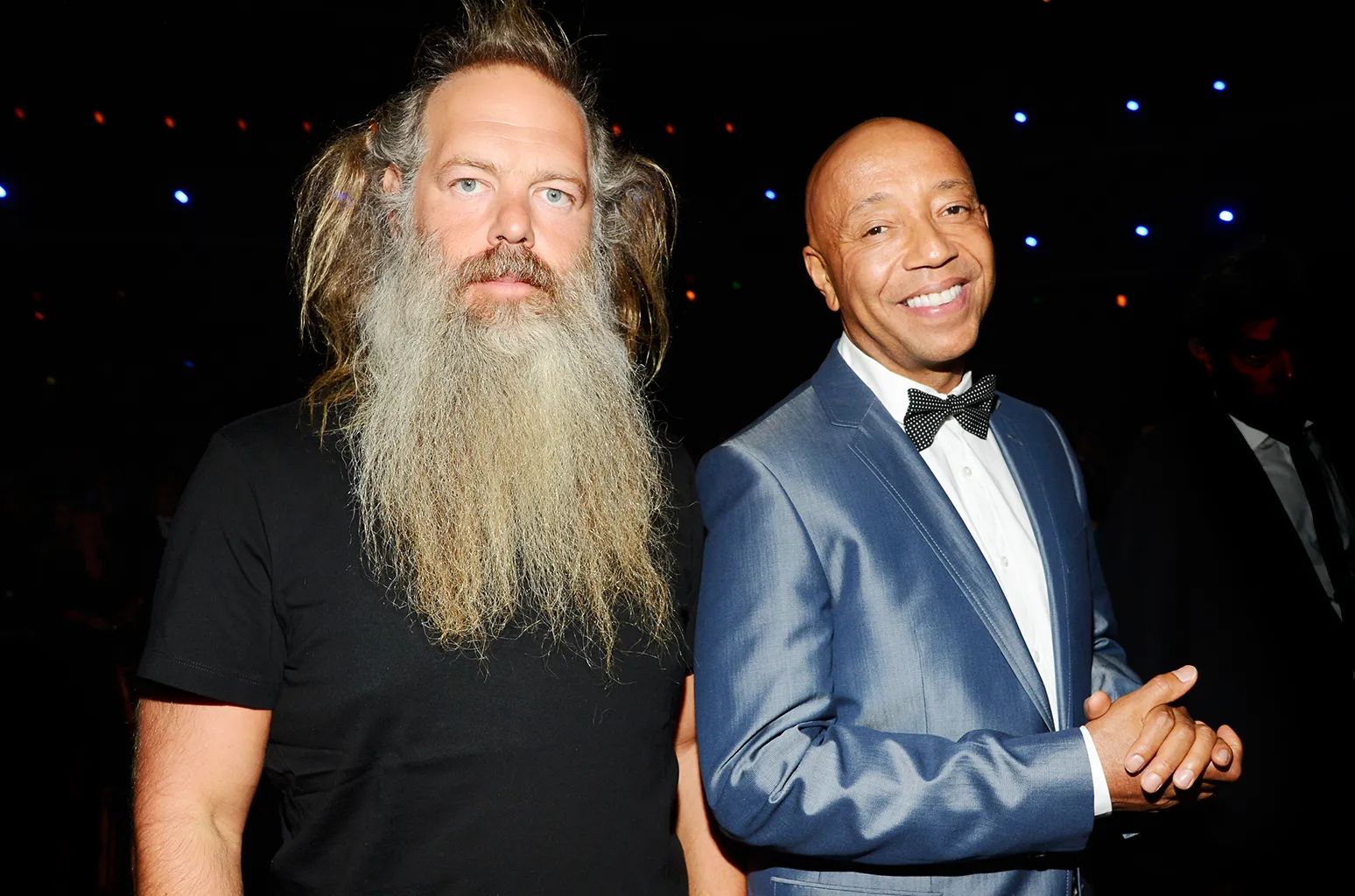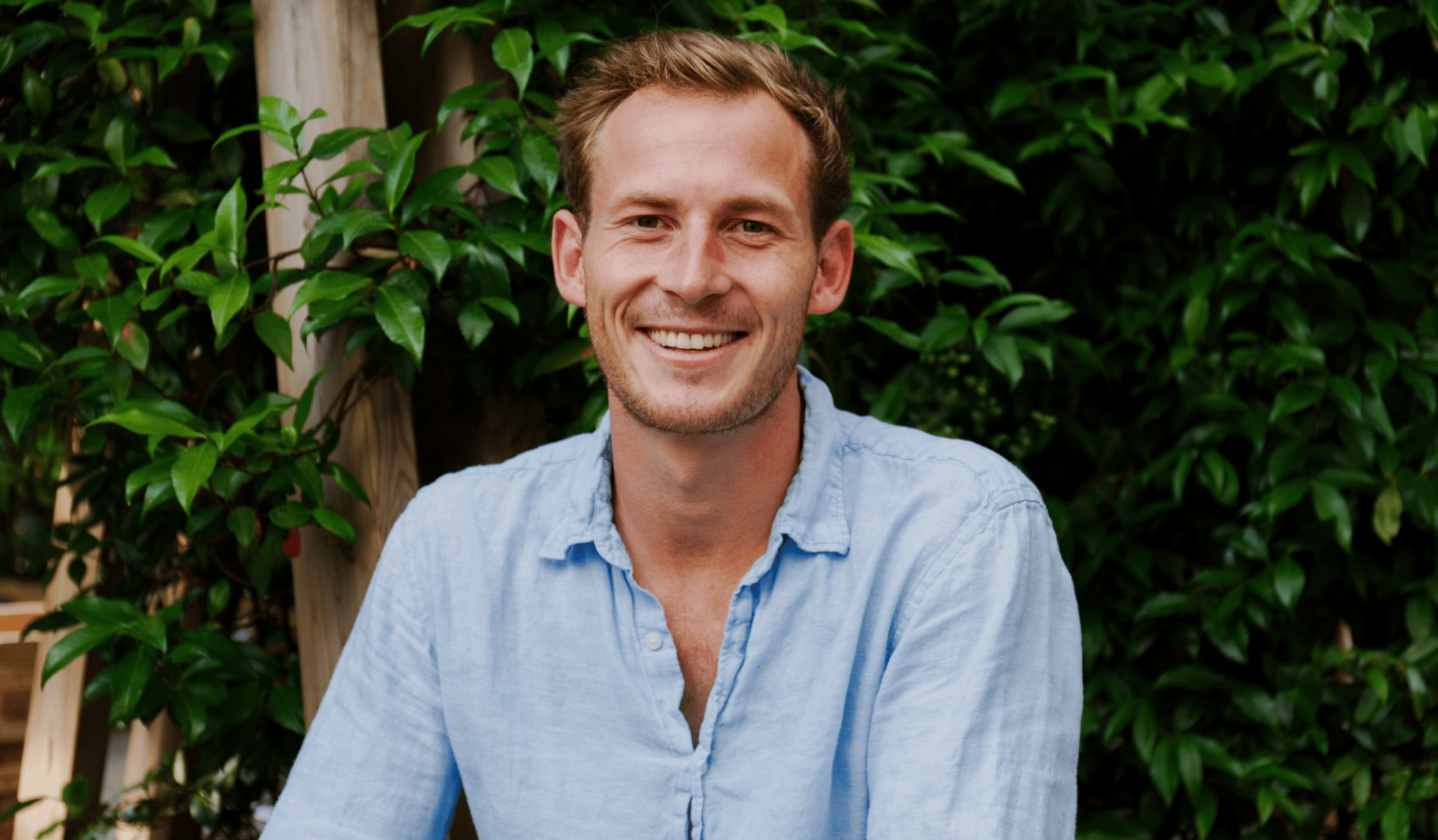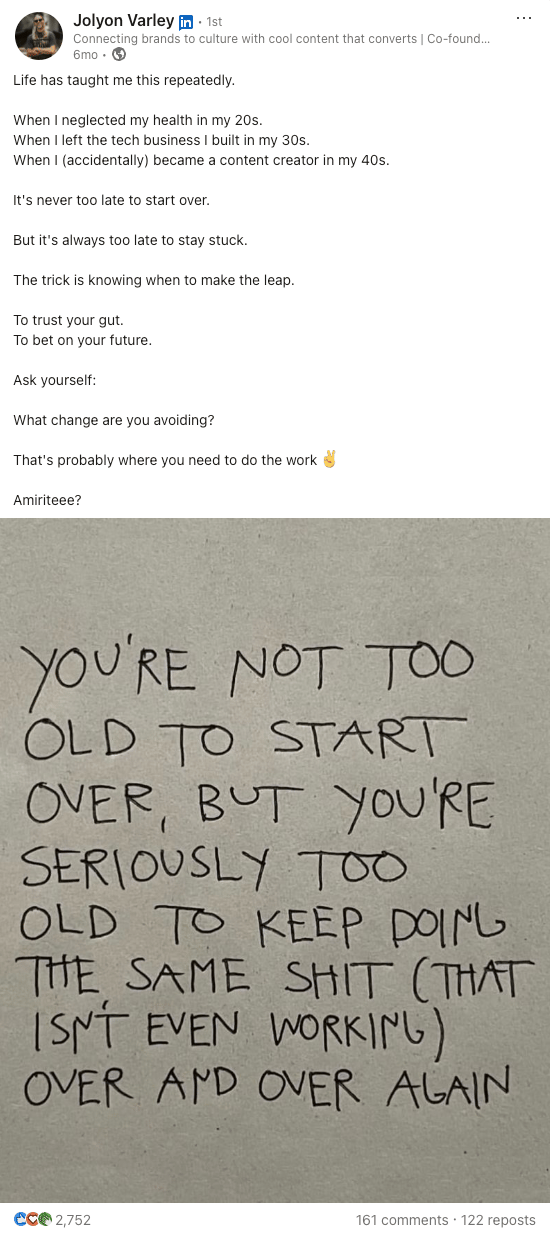- Founderoo's newsletter
- Posts
- DefJam records $144M founder story
DefJam records $144M founder story
+ the $1M/year fuel deliver business
Hey, it's Guy & Farzan,
Been sanding kitchen chairs in the sun. Reupholstering them too. Slow work. Dust everywhere. But there's something about taking something worn down and making it good again.
Kind of like building a company. Enjoy this week's stories.
Reading time: 9.25 mins
In the mail today. 3 founder stories, 2 founder notes
Kaddim (Ad)
Document collection software for Australian mortgage brokers. Too easy.
Sign up for a free trial
Founder story 1

Rick Rubin & Russell Simmons - Founders of DefJam Records
Rick Rubin & Russell Simmons: From Dorm Room to Hip-Hop Empire with Def Jam Records
How a NYU student and a street-smart promoter turned an underground movement into a $144M hip-hop powerhouse and changed music forever.
The Journey
- Rick Rubin: Raised on rock and punk in Long Island, played guitar in band "The Pricks"
- Russell Simmons: High school graduate who discovered hip-hop at City College in Harlem in 1975
- Rubin attended NYU for law, became the only white person at local hip-hop club shows
- Simmons witnessed Eddie Cheeba's 1977 Harlem performance, called it his "destined path"
- Met through the underground scene (possibly via Vincent Gallo or DJ Jazzy Jay)
- Founded Def Jam Records in 1983 in Rubin's NYU dorm room at Weinstein Hall
- Perfect partnership: Rubin brought creative vision, Simmons brought industry experience
The Evolution of Vision
- 1975: Simmons discovers hip-hop as emerging underground culture in The Bronx
- 1977: Realizes hip-hop is his calling after seeing Eddie Cheeba perform
- Late 70s: Rubin discovers the "rawness and authenticity" of hip-hop music
- 1983: Rubin recognizes gap in market - records don't capture live hip-hop energy
- 1984: Def Jam officially founded, focusing on authentic representation of hip-hop culture
- 1990s: Label generates hundreds of millions in revenue, becomes hip-hop institution
Overcoming Obstacles
- Hip-hop wasn't recognized as legitimate art form or commercial opportunity
- Existing record labels ignored or misrepresented hip-hop culture
- Rubin was outsider as white fan in predominantly Black music scene
- Music considered "offensive" and "different" by mainstream industry
- Had to challenge established "banker" mentality of traditional music companies
- Balanced creative authenticity with commercial viability
- Navigated complex corporate acquisitions while maintaining hip-hop roots
Today's Impact
- $144M revenue from DMX's first two albums alone
- Sold 50% stake to PolyGram in the 90s
- Now subsidiary of Universal Music Group (UMG)
- Global presence with subsidiaries in Germany, India, Africa, Norway
- Launched legendary artists: Beastie Boys, LL Cool J, Public Enemy, Run DMC, Jay-Z, Rihanna, Kanye West, Nas, Logic
- Rubin recognized as one of greatest hip-hop producers
- Simmons considered a mogul with generational wealth
- Continues to push hip-hop culture worldwide
Growth Strategies That Worked
- Authenticity First: Made records that captured actual club energy, not polished studio sound
- Artist-Centric Approach: Worked on music that excited artists, not chasing hits
- Strategic Partnerships: Secured distribution deal with Columbia Records
- Complementary Skills: Rubin handled creative/production, Simmons handled sales/distribution
- First-Mover Advantage: Entered market before hip-hop went mainstream
- Cultural Commitment: Stayed true to hip-hop roots through corporate changes
- Strategic Acquisitions: Purchased 50% of Roc-A-Fella Records for $1.4M in 1997
Key Milestones
- 1975: Simmons discovers hip-hop scene in Harlem
- 1979: Simmons meets Robert Ford Jr., his industry "guru"
- 1983: Rubin co-founds Def Jam in NYU dorm room
- 1983: Joseph Simmons (Russell's brother) forms Run DMC
- 1984: Rubin and Simmons officially partner on Def Jam
- 1994: PolyGram buys Sony's 50% stake, places Def Jam under Island Records
- 1997: Acquires 50% stake in Roc-A-Fella Records for $1.4M
- 1997: Signs DMX through A&R Irv Gotti
- Later: Acquired by Universal Music Group
The Philosophy
Rick Rubin: "It wasn't shiny, it wasn't polished, it was raw and felt more poetic and personal. No one got into hip-hop at that time thinking it was going to be their road to success."
On Industry Challenge: "I challenged existing music companies and called them 'bankers' - Def Jam was about working on music that excited me and the artists."
On Market Gap: "I'd go to these clubs, hear this incredible music, then buy the records, and they wouldn't match the energy. As a fan, I started making records that captured what I experienced in the clubs."
Russell Simmons on First Encounter: Simmons recognized Rubin as "the face of hip hop" and noted their complementary strengths - "He was five years older than me and already had a foothold in the music industry, while I had no experience at all."
Success Formula: "Def Jam succeeded through the marriage of art and commerce, driven by authenticity, first-mover advantage, and a commitment to pushing the culture forward."
Founder story 2
Juice Fuel: From Army Pilot to $1M Gas Delivery Business
The Founder: Cory (former Apache helicopter pilot) and his wife Caroline built a 7-figure mobile fuel delivery service with zero investors.
The Growth:
- Year 1: $77K
- Year 2: $385K
- Year 3: $1M+
The Model:
They deliver gas directly to driveways, boats, and fleet vehicles—eliminating trips to gas stations. Three revenue streams: fuel markup ($0.30-$1.50/gallon), subscriptions ($30/month for residential), and delivery fees ($8-$24 depending on service).
Smart Moves:
- Started with a landing page and Meta ads to validate demand before buying equipment
- Raised under $100K from friends/family (only outside capital taken)
- Bought used equipment from failed competitors for 50% off
- Built recurring revenue model with high customer retention
- Fleet customers bring in $34K/month; residential serves as marketing to attract commercial clients
The Strategy:
Cory leveraged domain expertise from working on offshore oil rigs. He took an old-school industry, added modern tech and marketing, and disrupted 40-year-old competitors who relied only on referrals. Commercial/fleet business (60% of revenue) drives profits, while residential customers act as brand visibility.
Key Takeaway:
Simple businesses scale better. Test demand first, build second. Find boring industries with high friction and add convenience through technology.
Founder story 3

Matthew Sarre - Founder of Jumpstart
How Matthew and Kabir escaped corporate life to build Jumpstart, reaching 7-figure revenue by redefining how top talent enters the startup world."
The Journey
- Grew up in London, studied Economics at Bristol University
- Spent three years at BCG (Boston Consulting Group) before burning out on consulting
- Joined WWD (Wizarding World Digital), a Harry Potter startup JV between Warner Brothers and J.K. Rowling
- Discovered the stark contrast between corporate and startup life
- Co-founded Jumpstart with Kabir Bali in 2020 during lockdown
- Built the company from their homes with almost no startup network
The Evolution of Vision
- 2020: "Let's create a law firm-style graduate programme for startups with rotating placements
- Early 2020: "That's a terrible idea - candidates leave just as they add value"
- Mid 2020: "Build a pre-vetted platform selecting top 1-2% of applicants"
- 2021-2023: "Add founder pitch sessions so candidates see the energy, not just job descriptions"
- 2024-2025: "Become the one-stop shop for startup hiring in the UK and beyond"
Overcoming Obstacles
- Launched during lockdown when startups weren't actively hiring
- Started with almost no network in the startup ecosystem
- Initial rotation model was fundamentally flawed and had to be completely scrapped
- Had to build trust on both sides of a two-sided marketplace simultaneously
- Faced the challenge of differentiating from traditional recruiters in a crowded space
- Learned to balance feedback - taking it seriously without treating it as gospel
Today's Impact
- 7-figure revenue (USD)
- 13 employees
- 10,000 website visitors per month
- Bootstrapped with no external funding
- Handpicks top 1-2% of thousands of monthly applicants
- Strong alumni network that drives referrals and credibility
- Organized the largest startup run in the world (accidentally)
Growth Strategies That Worked
- Word of Mouth Focus: Built relationships with founders who hired through Jumpstart, encouraging them to share in WhatsApp groups and LinkedIn - treating it as the forcing function for product quality
- LinkedIn Mastery: Matthew's personal LinkedIn posting drove startup awareness, while paid ads brought candidate volume
- Quality Over Quantity: Relentless focus on the top 1-2% of applicants to build trust with startups fast
- Founder Pitch Sessions: Let startups tell their stories live to pre-selected cohorts, flipping candidate excitement from lukewarm to energized
- Trust Through Transparency: No traditional recruiter games - gave startups access to 100% of candidates and only got paid if hires worked out after 90 days
- Richer Signals: Surfaced candidate videos and deeper profiles beyond standard resumes
Key Milestones
- Launched during COVID-19 lockdown
- First Cambridge Careers post brought 20-30 applicants on day one
- Applications scaled to thousands within weeks
- First candidate (top of year at Cambridge, GB gymnastics champion, lockdown entrepreneur) set the quality bar
- Built viral loop through 20-minute Zoom calls asking "Who should I speak to next?"
- Alumni network became a growth engine through referrals
- Reached 7-figure revenue milestone
- Expanding from general startup roles into software engineering
The Philosophy
"Race your own race." It's easy to look at the lane next to you; it's better to focus on your path.
"Be good." Don't do anything you wouldn't want your parents or friends to see. Act with integrity and be kind; it pays back over the long term.
On Feedback: "Henry Ford's line - 'If I had asked people what they wanted, they would have said faster horses' - is worth keeping in mind."
On Motivation: "Seeing things build, grow, and improve. When I was younger, I collected shells and 'gems' from the beach. At university, I was motivated by improving my tennis. That same mentality fuels my drive at Jumpstart: breaking through the next milestone and learning new things along the way."
Founder note from Jason Fried
New products don’t need to be revolutionary, life-changing, or disruptive breakthroughs to succeed.
Entire categories can roll downhill, gathering complexity as they go. Each product one-upping the next until more becomes too much. The cycle feeds itself, never satiated. Competitors locked in a loop of mutual destruction through perpetual over-improvement.
When that happens, the door cracks open for something new.
The newcomer doesn’t have to meet the others where they are. It just has to feel right — like someone opened the curtains and let the sun back in. The type of product that lets people exhale and say, “finally!”
Not groundbreaking. Just grounded. Standing where everyone else forgot to.
A founder note we loved

I hope you enjoyed this week. See you ini 7 days.
Quick reminder - If you like our newsletter, please do “add to address book” or reply. These are “positive signals” that help our newsletter land in your inbox. If you hate it, please unsubscribe (the unsubscribe link is in the footer).
Cheers
Guy + Farzan
Founderoo
Reply